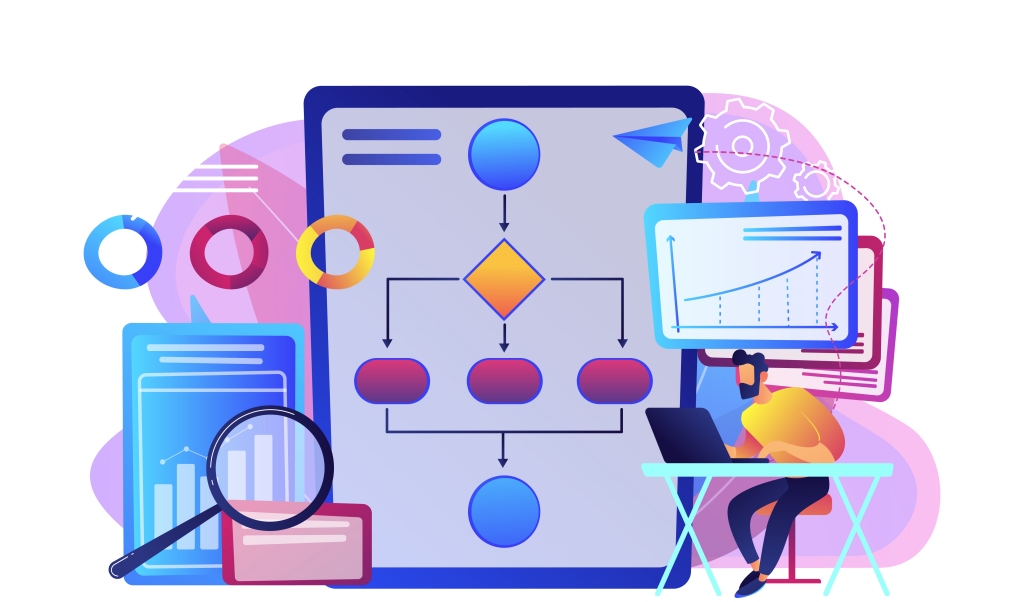XIMIVOGUE Tips for Order Management System Benefits
Author: Celia| Keywords chosen by Celia
In today's fast-paced business world, managing orders efficiently and effectively is essential to success.
Whether you're a small e-commerce startup or a multinational corporation, implementing an OMS can help you deliver a superior customer experience and stay ahead of your competitors.
Learn how OMS works and what it can do to help your retail business run more smoothly.

What is OMS and how does it work?
An order management system (OMS) is a software solution designed to centralize and automate the receipt, processing, and fulfillment of customer orders.
OMS allows businesses to efficiently manage the entire order lifecycle, from order receipt to final delivery, while providing real-time visibility and control over inventory levels, order status, and customer interactions.
Additionally, OMS provides real-time visibility into order status, allowing retailers to proactively manage customer expectations.
Benefits of an order management system
1. Order automation
Modern order management systems view the entire supply chain as an integrated ecosystem, allowing retailers to automate internal orders through order processing.
The benefit of using an OMS is that it gives you peace of mind that your marketplace will continue to function even when your employees are away.
By automation, you can reallocate resources to focus on more complex areas of your business that support growth and customer satisfaction.

2. Omnichannel experience
Omnichannel experiences give customers the kinds of options they expect today, including ship-from-store, ship-to-store, BOPIS, and unlimited inventory.
Order fulfillment creates complex customer traffic flows across Omnichannel, so orders must be tracked during Omnichannel operations. An OMS can centrally manage these orders, monitor data, update inventory, and perform order routing.
With an OMS, you can provide your customers with a consistent shopping experience online and in-store.

3. Enhance customer experience
The ultimate goal of any business is to provide a great customer experience, and an OMS can go a long way in achieving this goal.
OMS allows businesses to provide customers with accurate and up-to-date information about order status, shipping details, and shipping updates, so customers can easily track their orders and receive notifications at every step of the process, resulting in increased transparency and trust.
Additionally, order management's seamless integration with other customer-facing systems such as CRM and customer service platforms allows businesses to provide personalized, responsive, and proactive customer service.

4. Streamline operations
An OMS helps organize the order fulfillment process and all related administrative tasks, effectively streamlining these workflows.
By automating order entry, routing, and tracking, companies can eliminate manual processes that are prone to human error. This streamlined approach minimizes delays, improves order accuracy, and improves overall customer satisfaction.
Administrators can use real-time reports to troubleshoot issues as they occur. Optimize your existing sales channels, generate new revenue streams, and expand your market.

5. Optimize inventory management
One of the benefits of implementing an OMS is that it gives you control over inventory management.
By integrating with inventory management systems, OMS provides real-time visibility into inventory levels, locations, and movements. This visibility allows businesses to maintain optimal inventory levels, prevent stockouts, and reduce overstock.
The result is increased operational efficiency, lower inventory costs, and increased ability to meet customer demand.


 Bloom into Fresh Style with XIMIVOGUE Spring Garden Series
Bloom into Fresh Style with XIMIVOGUE Spring Garden Series
 6 Relaxation Gifts to Start the New Year Right
6 Relaxation Gifts to Start the New Year Right
 6 Trends of Earrings Everyone Will Wear in 2026
6 Trends of Earrings Everyone Will Wear in 2026
 Take Your Hearts by Storm with XIMIVOGUE Nailong Collection
Take Your Hearts by Storm with XIMIVOGUE Nailong Collection
 6 Meaningful New Year Gift Ideas for New Beginnings and Resolutions
6 Meaningful New Year Gift Ideas for New Beginnings and Resolutions




